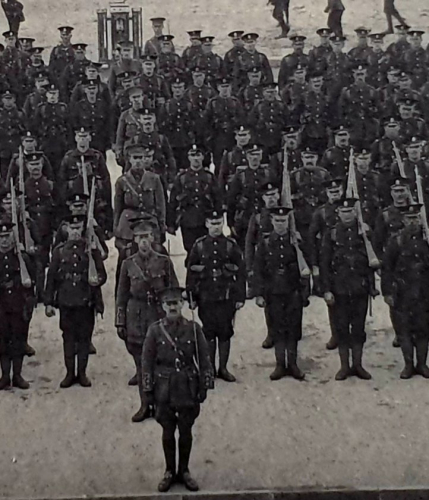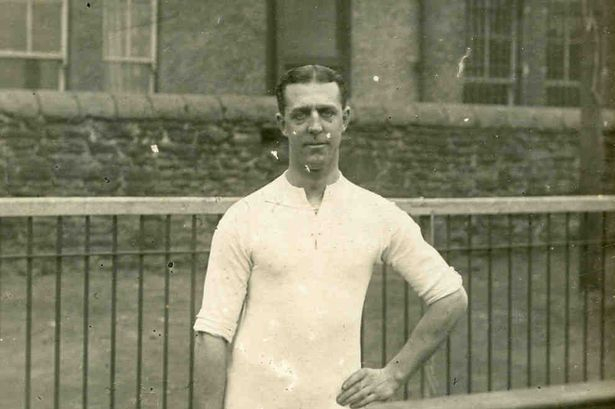We will remember them : Swansea Sunday Supplement Sunday, 8th Nov 2020 09:32 by Keith Haynes It’s the official day today of remembrance, and memories will certainly be recalled of the many millions who have sacrificed their own lives so we all today can enjoy ours. At 11am you have the opportunity to pay your respects in silence to the fallen who never came home. We are going to have a look this remembrance morning at some links to our club and the wider city. Swansea Pals ‘The 14th’  Swansea Pals parade at Rhyl, North Wales Across the country men volunteered to join battalions of neighbours, work colleagues and even football supporters. Many of these Pals Battalions, as they became known, saw their first action at the Somme. Some battalions suffered terrible casualties and this had a big impact on their local communities where whole streets might be stripped of their young men. On 7th July the Welsh attack started. The German machine guns caused many casualties and the thick wood was difficult to fight in. Against the odds, the Welshmen cleared most of the German positions in the wood and by the time the 38th Division was replaced by reinforcements Mametz Wood was almost secure. About 600 officers and soldiers had been killed. Spencer Bassett was born in 1885 in Blackheath, Kent, and made his name playing for nearby Maidstone United. His early promise was such that he signed for Arsenal in 1909, but, having scored one goal for the Gunners, he soon moved on to Exeter City where served as a reliable centre-back for three seasons. Spencer joined Swansea Town for the 1913-14 season, making his debut in a Southern League Fixture against Caerphilly. In all he made 32 league and cup appearances for the Swans, scoring two goals in an 8-0 victory over Treharris in February 1914. By now a skilful and clever right-half, he initially re-signed for the 1914-15 season but in the upheaval and uncertainty caused by the beginning of the war he eventually joined Southend United. Whilst with Southend Spencer enlisted at Woolwich to serve with the Royal Garrison Artillery, and by 1917 he was Acting Bombardier with the 140th Siege Battery. He was wounded in the early stages of the Battle of Arras, and later died of those wounds, aged 32, on 11 April 1917. He is buried in the Pozieres British Cemetery, Oviller-La Boisselle.  Spencer Bassett Joe Bulcock was the son of a Burnley cotton weaver. He played reserve team football for Burnley and Aston Villa, before going on to appear for Bury and Exeter City. He then spent five seasons with Crystal Palace, where he developed a reputation as one of the best backs in the Southern League. He was part of a representative team the FA sent to tour South Africa in 1910. joined Swansea Town late in the 1913-1914 season and went on to captain the Swans on number of occasions, including in their famous 1915 FA Cup victory over Football League Champions Blackburn Rovers. That match’s programme contained a pen portrait of him, describing him as a favourite on and off and the pitch. Unusually for a footballer of the time, the accompanying photograph showed him wearing a bow tie and boater hat. After professional football ended in the summer of 1915, he lived in Llanelli and worked as a plumber’s mate. He joined the Welch Regiment as a private in December 1915 and was sent to France in September 1917. He died on 20 April 1918 of head wounds received at the Fourth Battle of Ypres in Flanders. He was 38. He is buried at Haringhe (Bandaghem) military cemetery in Belgium.
Edward Mitchell
Thank you to you all who in service thought of others before themselves, travelled hand in hand to serve, and defend democracy, who gave their lives - so we today can enjoy ours. Thanks to Swans at War, 100 years, swans100.com. Manuel Charles Please report offensive, libellous or inappropriate posts by using the links provided.
You need to login in order to post your comments |
Blogs 31 bloggersOxford United Polls |


